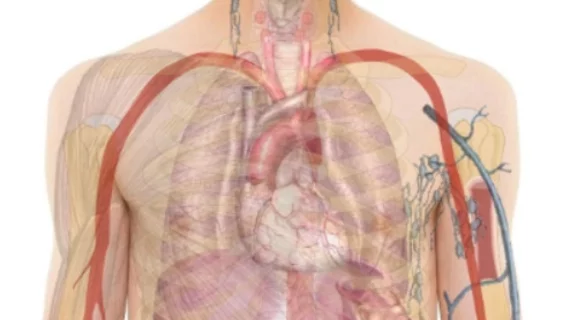Routine chest imaging all AI needs to spot impending heart maladies
AI has proven capable of automatically detecting looming heart trouble on CT scans taken for lung issues like lung cancer, pulmonary embolism and pneumonia.
The success is noteworthy because the potentially lifesaving cross-check would take expert physicians too long to justify routinely conducting it for every patient who gets a chest CT.
The research was carried out at Brigham and Women’s Hospital in Boston and is current now in Nature Communications.
Corresponding author Hugo Aerts, PhD, and colleagues trained, tested and validated their system on images from more than 20,000 adults. The team divided this broad field between patients with no cardiovascular symptoms and those with varying degrees of chest pain.
The AI, which incorporates deep convolutional neural networks, works by automatically recognizing and quantifying calcification buildups in coronary arteries. The greater the accumulation, the higher the chance of heart attack or other serious cardiological event.
Aerts, who directs the AI in medicine program at the Harvard-affiliated hospital, and co-authors report high agreement between the AI’s quantifications and those manually calculated by physicians with expertise in reading chest CTs.
“Our results demonstrate the clinical value of a deep learning system for the automated prediction of cardiovascular events,” the researchers conclude. “Implementation into clinical practice would address the unmet need of automating proven imaging biomarkers to guide management and improve population health.”
In a press release sent by the hospital, Michael Lu, MD, MPH, director of AI at Mass General’s cardiovascular imaging research center, notes the key role played by coronary artery calcium scores in appropriately prescribing statins.
Automatically obtaining these scores for all patients with chest CTs in the EHR, Lu says, also would mean extending proactive care to patients before symptoms develop to let them know they’re sick.
“This is an opportunity for us to get additional value from these chest CTs using AI,” Lu adds. “From a clinical perspective, our long-term goal is to implement this deep learning system in electronic health records, to automatically identify the patients at high risk.”
The study is available in full for free.

